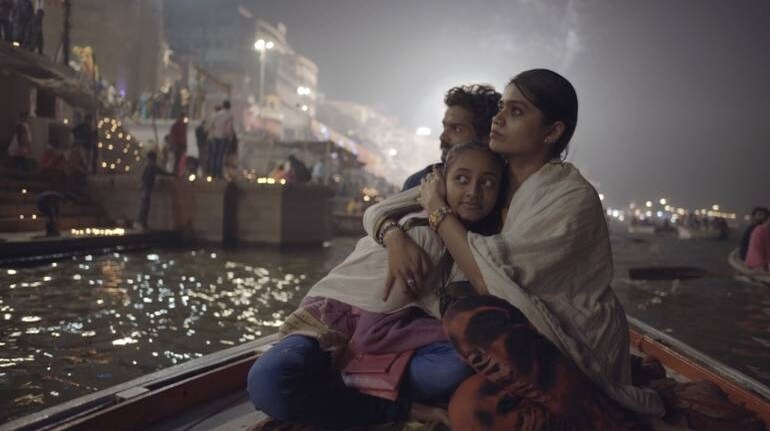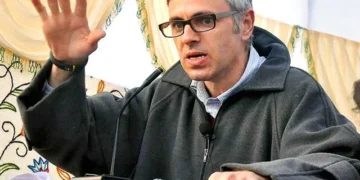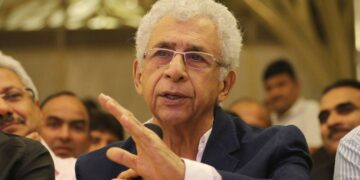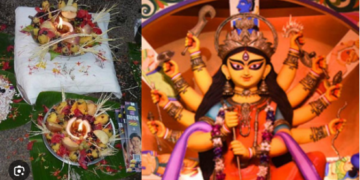Set in Varanasi, Sharma’s debut feature film, Jhini Bini Chadariya, is about the changing face of the ancient Indian city. Inspired by a Kabir Das poem of the same title, the film follows a street dancer and a handloom weaver to paint a portrait of the city beyond its famous tag as a top pilgrimage centre.
The Tokyo festival, which continues as a hybrid event for the second successive year following the coronavirus pandemic, concludes on November 8 after ten days of screenings. French acting legend Isabelle Huppert is the president of this year’s competition jury that will award the prestigious Tokyo Grand Prix for the Best Film on Monday.
“I am happy that my first feature film had its world premiere at the Tokyo festival in a physical edition,” says Sharma, who was born in Mughalsarai, about 20km from Varanasi, Uttar Pradesh. Jhini Bini Chadariya, which had its world premiere at the festival on November 1, won praise from the Tokyo audience for its realism.

“The theatre in Tokyo was almost full on a Monday morning,” says Sharma, who studied commerce as an undergraduate at the Sri Aurobindo College of Delhi University. “After the screening, there were tweets from the audience members that said the movie appealed to them. Some said they were fascinated by the ‘stunningly beautiful’ ghats, some others mentioned the ‘hustle and bustle’ and ‘invisible tension’ of the city,” adds the director, who couldn’t present the film at the festival because of Covid-19 travel restrictions.
A fan of Kabir and Saadat Hasan Manto, Sharma captures the pulse of the city in his long frames of Varanasi’s famous landmarks like the Shivala Ghat, Thatheri Bazaar and Vishwanath Street. The film revolves around the parallel lives of street dancer Rani and handloom weaver Shahdab, who never meet in the movie. The director takes the camera to the Lallapura weavers’ colony to bring to life the miseries of its inhabitants threatened by modernisation.
“Kabir’s poems that always talked about humanity made me curious to know more,” says Sharma, who borrowed the 15th century poet’s philosophy of the body as a brittle thread that has to be cared for. “We are all interwoven. One thread alone can’t make the whole sari. All our actions bring consequences, sometimes upon people whose existence we are not aware of,” he adds.
“In Varanasi, the people don’t talk anymore about the weavers and the dancers, who have always been an integral part of the city. It is very important to talk about them,” says Sharma, who founded a theatre group, called Steps for Change, while in college to draw young people into social activism. In the film, Rani and her deaf daughter wage a daily fight against exploitation from the men around them. Reeling from loss of work, Shahdab finds solace in an unlikely friendship with an Israeli traveller.
The 97-minute film in Hindi, English and Hebrew, which is part of the Asian Future section of the Tokyo festival, follows the director’s two previous documentary movies – Holy Wives (2010), about human trafficking in India, screened at the Vienna International Human Rights Film Festival, and Rainbows are Real (2014), on the transgender community in Kolkata.
Asian ascendance
Last year, Marathi film Karkhanisanchi Waari (Ashes on a Road Trip) featuring Mohan Agashe was the only Indian entry at the Tokyo festival, considered to be the biggest film festival in Asia.
The Tokyo festival, which opened on October 30 with Clint Eastwood’s Cry Macho, has two feature films from Sri Lanka this year, one of them vying for the festival’s top prize. Alborada (The Dawning of the Day) by Asoka Handagama – part of the competition section along with films such as celebrated Filipino director Brillante Ma Mendoza’s Payback and Crane Lantern by Azerbaijan filmmaker Hilal Baydarov – is a fictionalised account of Chilean poet Pablo Neruda’s tenure as a diplomat in Colombo in 1929. Asu, the other Sri Lankan entry directed by Sanjeewa Pushpakumara, tells the story of a pregnant woman’s battle with cancer.























